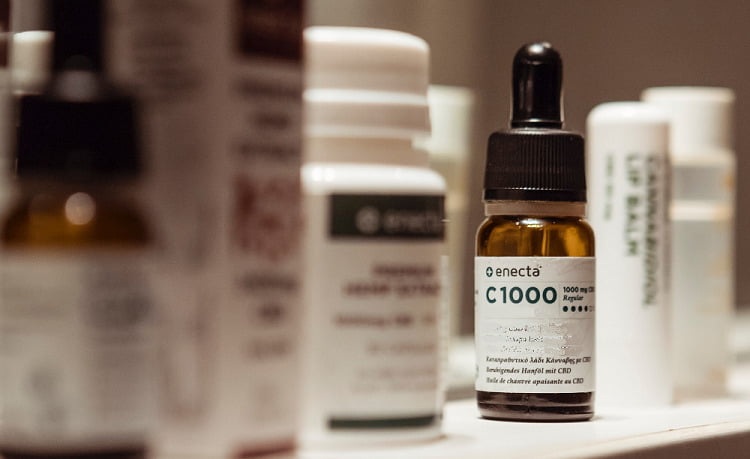Meperidine is a part of the opioid family of drugs and is an analgesic drug that is used to combat moderate to severe pain in the short term, and also for chronic pain although this has been seen too be controversial. (1,3)
Meperidine can provide a feeling of high elation as well as rapid relief from severe pain and also relieves symptoms associated with anxiety and depression.
It is predominantly used to alleviate severe pain, whether before or after an operation, as well as during certain medical procedures. (7)
It is also known as Pethidine and is a synthetic opioid, meaning that it is a drug manufactured by chemists rather than being a naturally occurring drug, and it has been sold under the brand name Demerol.
As it is a highly addictive drug, prolonged use can result in Meperidine addiction, through no fault of the user.
Meperidine and healthcare workers

It is acknowledged that Meperidine has highly addictive qualities, and research has found that a significant number of healthcare professionals have become addicted to this opioid. (1,2)
This has been put down to the ease of access that healthcare professionals have to the drug, as well as the medical knowledge about its pain relieving qualities.
It has therefore been commonly referred to as the “Doctors and Nurses Drug”. (1,9)
It is thought that a significant number of people who become addicted to Meperidine do so “iatrogenically”, – this means that the addiction develops as a result of the drug being used for medical purposes. (1,2)
Meperidine has attracted a lot of controversy because of its highly addictive nature.
People who require medical treatment for severe pain and are prescribed Meperidine are at a serious risk of developing a Meperidine addiction. (2,3)
Meperidine was in fact the first man made opioid developed, and the reason why it is suitable for immediate pain relief is because it is one of the faster acting opioids, this is because it has a short half life.
At OK Rehab, we offer free advice from a team of non-judgemental professionals, many of whom are in recovery and understand how hard it can be to change your relationship with addiction.
To find out more about Meperidine addiction, simply reach out to our 24/7, confidential hotline on 0800 326 5559.
Meperidine half life

Meperidine has a half life time of 2-5 hours, and takes effects in a matter of minutes so it is very fast acting when used for pain relief which is its main advantage, and easily explains why its effects are so desirable and therefore easy to take, however this potentially makes it dangerous. (2,5)
Half life refers to how long it takes the body to take in and get rid of half of the drug. The shorter the half life the less time the drug stays in the body for.
Drugs with a short half life like Meperidine tend to take effect quickly but wear off after a few hours, meaning that people have to take the drug again in order to maintain the desired effects.
Its short action time means that the effects wear off after a short period of time and the pain returns so repeated doses are required at shorter intervals to help manage the moderate to severe pain a person is experiencing.
This is because the pain people are experiencing can be so unbearable that they have a strong need to take the drug.
This then alleviates significantly unbearable pain, unlike milder pain, which may be tolerated to a degree without the need of pharmacological agents. (9)
Through this process, dependence and Meperidine addiction can begin to take effect.
Neuroadaptation – How the body responds to Meperidine

When someone consumes Meperidine, certain properties in its chemical structure are able to latch onto opioid receptors present in the human body located in the brain, various organs, the spinal chord and areas of the gut.
When Meperidine is consumed for the first time, the body and the brain are encountering something novel and so are highly sensitive towards the physical presence of Meperidine.
As time passes the receptors located throughout the body adapt to the presence of the drug and are not so intensely effected by its presence as they previously were.
When this stage is reached people may find that they need to take more of the drug to experience the same effect that they originally had. (5,6)
The term neuroadaptation is the name give to this process where the brain has adapted to the presence of the drug and is now able to function adequately with the drug in the system.
As soon as any drug is consumed the body and brain spring into action to reduce the effects of the drug and initiate a process designed to remove the drug from the body.
The drug will still be able to have an effect, but the duration of these effects depends on the chemical make up of each particular drug. (6)
At OK Rehab, we offer free advice from a team of non-judgemental professionals, many of whom are in recovery and understand how hard it can be to change your relationship with addiction.
To find out more about Meperidine addiction, simply reach out to our 24/7, confidential hotline on 0800 326 5559.
Meperidine addiction – tolerance

When a person has reached a stage where their body becomes familiar with the drug they may find that they will need to take more of the drug in order to feel the same effect that they felt when they initially took the drug.
The effect of the dose of the drug they originally took does now not produce the same results, so in order to experience the same effect they will be required to take a greater amount of the drug.
When this occurs we can say the body has developed a tolerance to the drug. (5)
This is the downside to the fact that Meperidine is fast acting, as it means it is highly addictive.
This is because the brain and body will quickly build up a tolerance to the effects of the drug due to the fact it has a short half life. (1)
The fact that it produces such a significantly high euphoric effect means it possesses qualities that are attractive to the psychology of the human brain and people will easily become drawn to these properties as they seek to elevate their mood and change their emotional state.
If after a period of time, a person ceases taken the drug then they will begin to experience withdrawal symptoms which can only be eradicated by taking more Meperidine, and so the cycle of dependence on the drug is maintained.
A person could build up a tolerance to a fast acting drug like Meperidine in a couple of weeks or less, due to its short half life. (5,6)
Meperidine addiction – withdrawal effects

Thanks to the process of neuroadaptation, the body becomes accustomed over a period of time to the presence of the drug.
This means it’s able to function with the drug in the system. However, if a person stops taking the drug, the receptors that are use to having the chemical properties of Meperidine attached to them behave unpredictably if the drug is not available.
As a result of this, the body will start to experience withdraw symptoms.
The withdrawal effects of opioid drugs like Meperidine are in fact inverse to the effects of the drug that people seek. Namely irritability, restlessness, anxiety, muscle aches and an inability to sleep to name but a few. (5,10)
At OK Rehab, we offer free advice from a team of non-judgemental professionals, many of whom are in recovery and understand how hard it can be to change your relationship with addiction.
To find out more about Meperidine addiction, simply reach out to our 24/7, confidential hotline on 0800 326 5559.
The role of dopamine

Meperidine like a lot of other opioid drugs generates a powerful feeling of euphoria in those that consume the drug, this is down the release of a type of neurotransmitter called Dopamine. (6)
Dopamine is released via the rewards pathway in the brain, and its presence is an important factor in understanding why people become addicted to the drug.
People feel a sense of pleasure and excitement when they anticipate receiving this feeling from taking the drug.
This activates the reward pathway, and each time a person consumes the drug a strong association is built up between the consumption of the drug and the intense feeling of pleasure that occurs when the drug is taken.
This reinforces the probability that the person will be highly inclined to take the drug again. (6,8)
Dopamine communicates with various areas of the brain that are involved with our thinking, behaving and emotional experiences and is very significant in affecting our moment to moment mood.
It has the potential to boost our mood into a positive state which can be far more intense than the natural amounts of dopamine present in out bodies (6,8)
Meperidine possesses chemicals that are able to replicate the functions of the naturally present neurotransmitters like dopamine, as they latch on to the opioid receptors throughout our bodies and make us feel euphoric. (7)
The psychological reasons behind Meperidine addiction

There are two psychological reasons which lead to the development of Meperidine addiction – positive reinforcement and negative reinforcement.
The motivation to take the drug initially is very strong for people as it is extremely effective in reducing the effect of moderate to severe pain.
The more pain people experience, the greater relief they will have when the pain is alleviated, this also helps in maintaining the reliance people have on the drug. (6)
As tolerance builds up people may experience withdrawal symptoms when they stop taking the drug, so there is a negative reinforcement for taking the drug as it reduces unpleasant withdrawal symptoms.
Also, as Meperindine produces feelings of pleasure, then consumption of the drug will be positively reinforced and lead to a strong probability that someone will seek to take the drug again. (4,6)
At OK Rehab, we offer free advice from a team of non-judgemental professionals, many of whom are in recovery and understand how hard it can be to change your relationship with addiction.
To find out more about Meperidine addiction, simply reach out to our 24/7, confidential hotline on 0800 326 5559.
Indications someone maybe addicted to Meperidine

A person with a Meperidine addiction may have built up a tolerance to the drug over a period of time, reflected in the fact that they now require higher amounts of the drug to produce the same initial effects they obtained when they first took the drug.
The fact they have become physically dependent on the drug is illustrated by their tendency to experience withdrawal symptoms when they stop taking the drug for a period of time.
Most of their waking time is spent thinking about Meperidine and how they can get hold of enough of the drug to help get them through the day.
All other aspects of their life tend to get neglected as Meperidine becomes their sole focus.
Their job, social life, family and friends and pleasurable activities that they regularly enjoy have now become far less less important to them.
They may have tried several times before to give up the drug but have been unable to do so, despite the obvious physical and psychological harm it is doing them.
This indicates that they have lost the ability to exercise any degree of control over their use of the drug, despite wanting to stop taking it.
There may be a noticeable drop in the physical appearance as their lack of self care becomes apparent, which can be seen by a deterioration in their own personal hygiene.
The concepts of tolerance and withdrawal will be present if someone has developed a physical dependence towards Meperidine, however for a person to be addicted they normally become psychologically dependent on the drug as well.
This means they will need to consume the drug to feel its euphoric effects and start to take the drug because they know it will have that effect on them.
A failure to be able to control their use is normally a sign that they are becoming addicted.
Help for Meperidine addiction
Mepredine addiction can be life-changing, but there is hope. We offer guidance and solutions for anyone seeking help for themselves or a loved one.
At OK Rehab, we offer free advice from a team of non-judgemental professionals, many of whom are in recovery and understand how hard it can be to change your relationship with addiction.
To find out more about Meperidine addiction, simply reach out to our 24/7, confidential hotline on 0800 326 5559.

References
(1) Annagur, B.B. (2012) A Nurse with Pethidine Addiction
European Journal of General Medicine 9(1) p59-61
(2) Buck, M.L. (2011) Is Meperidine the drug that just won’t die? The Journal of Paediatric Pharmacology and Therapeutics. Jul-Sept 16(3) p167-169
(3) Clubb, B., Loveday, W., Ballantyne, S. (2013) Meperidine: A Continuing Problem. Substance Abuse: Research and Treatment 7. 127-129
available online@Meperidine: A Continuing Problem (nih.gov)
(4) Gross, R. (1987) The Science of Mind and Behaviour. Hodder and Stoughton. London
(5) McNally, H. (2018) Opioid Dependence: A Clinical and Epidemiologic approach. Springer. USA
(6) Moss, A, Dyer, K (2010) The Psychology of Addictive Behaviour. Palgrave McMillan. New York
(7) Newton, D.E. (2016) Prescription Drug Abuse. ABC-CLIO California
(8) Rassool, G.H. (2011) Understanding Addictive Behaviours. Palgrave MacMillan
(9)Tinico-Gonzalez, J. (2018) Iatrogenic Addiction Caused by Meperidine. International Archives of Addiction Research and Medicine. Volume 4 Issue 1
(10) Wills, S. (2005) Drugs of Abuse. Pharmaceutical Press. London
(11) Yoon, R. (2014)Opioid Addiction In Herie, M. & Skinner, W. (ed) Fundamentals of Addiction: A Practical Guide for Counsellors. CAMH. Canada






